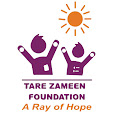Menstruation, the regular discharge of blood and mucosal tissue from the uterus' inner lining through the vagina. Yes! This is the definition you always hear, too, by your teachers or anywhere you read it. But here's not the end of the definition; it has different meanings for some people across the world. For them, it is the entitlement they give to their fights to break the societal taboos.
When we talk about Menstruation, we always come across our traditions, customs, and yes, not to be left taboos. Many of our religions have menstruation-related traditions, and the most highlighted word there is 'Impurity.'
Religions like Islam prohibits sexual contact with women during Menstruation. They argue that menstruating women are in this state in which they are unable to maintain wudhu- an Islamic procedure of cleansing body parts- so they are prohibited from touching the Arabic version of the Qur'an. In Hinduism, menstruating women are considered ritually impure and so given rules to follow.
Menstrual Education becomes the only way to make people differentiate between the Taboo and the Tradition. It has been frequently taught in schools and many educational institutes, but mothers still become the primary source of information.
Effective educational programs are essential to provide children and adolescents with clear and accurate information about Menstruation. Also, schools can be an appropriate place for menstrual Education to take place.
Above all these matters, do you ever hear of 'Period Poverty'? No, I guess! So, period poverty is a global issue that affects women and girls all over the globe, who do not have access to safe, hygienic sanitary products. In many economically vulnerable and middle-income countries, this becomes a huge issue.
Not only on a large scale but if we look into the rural areas in our own country, you will indeed find the issue raising its heights. It's either due to low income or less exposure, due to which the girls have less access to menstrual Education. As the access to sanitary products such as pads, tampons, or cups are limited here, girls often resort to using proxy materials such as mud, leaves, or animal skins to absorb the menstrual flow.
Period poverty here becomes a broader issue than one of the economy. Because of rooted stigma and taboos, it becomes a rarely discussed topic in families or schools. Menarche often arrives suddenly to these girls with little or no knowledge of what is happening to them.
According to UNICEF, one in three girls in south Asia was clueless about their menarche, and 48% of girls in Iran were made to think that Menstruation was a disease. Often tabooed a shameful, dirty, and female weakness, the secrecy surrounding Menstruation has permeated every aspect of society that nurtured superstitions and taboos still being passed on between generations. In so many communities, menstruating girls and women are still prohibited from going to kitchens, crop fields, or worship places.
The community leaders, health workers, and teachers are perfectly positioned to nullify menstrual stigma. Parents and broader family members need to be educated about these taboos and superstitions, which unintentionally harm every woman and girl. To establish a substantial social change, Education becomes the only key.
All girls and boys worldwide must be educated about Menstruation and reproductive health to empower them to talk comfortably about periods and sexual health.
A senior guide of Odisha State Bharat Scouts & Guides, Miss Sonakhi Malla was selected to represent India in 'Young Women's Advocacy Forum and Women Delivers Conference' held at Vancouver, Canada from 31.05.2019 to 06.06.2019; she has taken a step forward and highlighted the topic of "Menstruation." Now, she has started her campaign stating, "break the silence and reboot the thought of menstruation." Huge applauds to the people working on such a global issue.








0 Comments